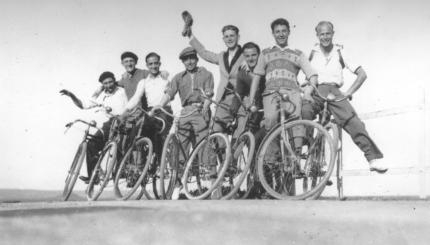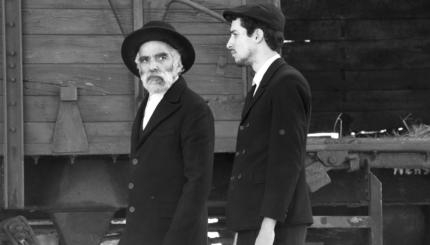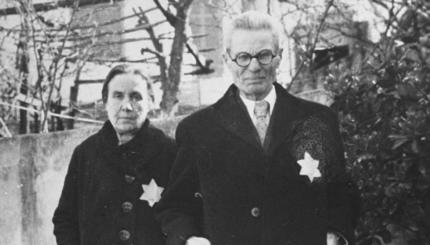Productions in the New York’s first Jewish theater festival–which runs from May 20 to June 14–are eclectic, including a puppet show, comedies, a midrashic interpretation and an adaptation of Bernard Malamud’s story The Jewbird. The 15 staged works and three readings in the festival come from Atlanta, Los Angeles, Kalamazoo, Philadelphia, Toronto, and Israel.
A Jewish theater festival of this scale has been long overdue. In 1980, at Marymount College in Manhattan a much smaller festival inspired the creation of the Association for Jewish Theater (AJT), an international network for the enhancement of Jewish culture through the theater arts, and a co-sponsor of this year’s event.
Since 1980 a few large companies in New York City–including American Jewish Theater and Jewish Repertory Theater–showed several mainstream Jewish plays. In the intermediate years, some people have felt, “there was a feeling there was no need for a Jewish festival,” speculates Edward Einhorn, artistic director of this year’s festival
Even today, with fewer Jewish theaters than there were in 1980, there are those who “aren’t excited” about a festival in Manhattan, Einhorn notes. “They say, ‘There’s so much Jewish theater, why do we need a festival?’ Maybe some people are afraid to be characterized as doing ‘Jewish theater.’ They don’t want to be ghettoized.”
But Kayla Gordon, executive director of AJT, represents a more enthusiastic constituency: “It has always been our dream to do a Jewish theater festival in a large city.”

Help us keep Jewish knowledge accessible to millions of people around the world.
Your donation to My Jewish Learning fuels endless journeys of Jewish discovery. With your help, My Jewish Learning can continue to provide nonstop opportunities for learning, connection and growth.
Some of the plays in the festival are “more Jewish” than others. Doctors Jane and Alexander, written and directed by Einhorn, is, he explains, “not Jewish in certain ways.” The documentary play explores the life of the writer’s grandfather, co-discoverer of the Rh Factor in blood, through interviews with his mother, a psychologist who had a stroke.
“They are a Jewish family, though not a religious one,” Einhorn says. “But what makes the play ‘Jewish’ is that their interests–science, the arts, psychology–are ‘typical’ Jewish interests. I’m interested in what connects Jews to these interests.”
Sholem Aleichem’s Mentshn, making its world premiere in English translation in honor of the 150th anniversary of the writer’s birth, is explicitly and traditionally Jewish. But, as adapted by Ellen Perecman and Yermiyahu Ahron Taub, this play about the relationship of servants and employers “is given a twist toward universal appeal,” Einhorn says. “A talk back will look at the play in the context of theater history. It will bring Yiddish theater into the mainstream of world theater.”
The Festival and AJT’s presence reflect the flowering of Jewish theater in the United States and around the world. Einhorn explains that Jewish theater in recent years has become more interesting, as Jewish playwrights have “gotten past the idea that every piece has to be a Fiddler or about the Holocaust. We cast a much wider net.”
Gordon agrees. “The past 10 years we’re more comfortable writing our own stories,” she says. “There’s a lot more theater with Jewish content, and characters are more Jewish. It’s become acceptable on TV. Jewish theater seems more mainstream.”
An infusion of new blood comes from Israel, where people attend theater in great numbers, productions travel throughout the country, and new, thought-provoking works dominate. Israel is also the place of origin of allaboutjewishtheatre, a website developed by Moti Sandak with an international flavor.
The Festival will include 100 performances in locations around the City. The primary venue is Theater 3 (311 West 43 Street); others include Marymount College, Center for Jewish History; Dixon Place; Don’t Tell Mama (a cabaret), the JCC of Manhattan, 92Y Tribeca, and New York University’s Tisch School. Most tickets can be purchased at the AJT web site and at Theater Mania, 212-352-3101. A festival pass entitles the holder to admission to every play. Some venues have their own ticket lines.


